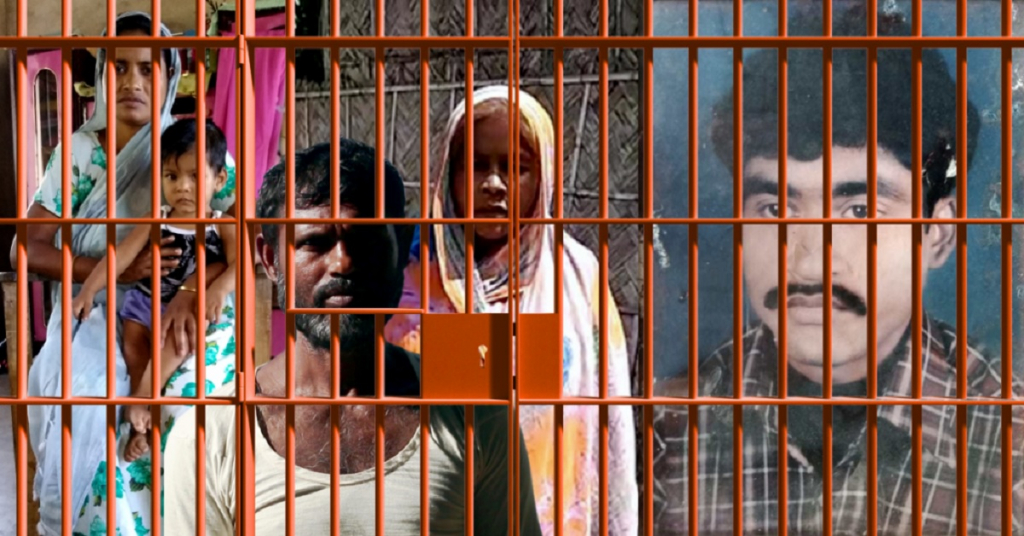
Proper upkeep of detention centre required to maintain human dignity: Rajasthan High Court Order could have an impact on detention centres across India, including those in Assam
12, Oct 2022 | CJP Team
The Rajasthan High Court has called for proper maintenance of Detention Centres, facilities where foreign nationals awaiting repatriation with their home countries are lodged till deportation. This order is significant, given its potential impact on other such facilities, especially those in the state of Assam, where people accused of being illegal Bangladeshi immigrants are incarcerated, pending deportation or bail.
The HC bench of Justice Sandeep Mehta and Justice Farjand Ali made the observation in connection with a case involving Tanzanian nationals lodged at a detention centre in Alwar. While the original plea was disposed of in March 2022, the matter pertaining to the upkeep of the facility was kept open, and the court had directed authorities to inform them about steps taken to maintain the detention centre.
On September, secretaries of the Social Welfare and Home departments of the Government of Rajasthan appeared before the court via video conferencing, and gave an assurance that appropriate steps shall be taken to upgrade the conditions of the detention centre.
In its final order, the court remarked, “We feel that it is absolutely essential to maintain and upkeep the Detention Centre in a good condition because the foreign nationals are being housed therein. Pursuant to being released and deported to their respective countries, they would carry impression regarding the conditions of the institution where they are housed till the date of their deportation. Otherwise also, the basic requirements of human dignity mandate that the conditions of such institutions should be upto the mark.”
The court then directed the Secretary, Department of Home, Government of Rajasthan to “ensure that all required logistics and repairs, etc. of the Detention Centre are catered to immediately.” The court further ordered, “Shri Mukesh Rajpurohit, Dy. Solicitor General shall also instruct the concerned officials of the Ministry of External Affairs, Government of India to make a provision for sanctioning appropriate budget required for maintenance and upkeep of this institution.”
A copy of the Order may be read here:
Potential impact on detention centres across India
The High Court order serves as a beacon of hope for detainees languishing behind bars in different detention centres across India. SabrangIndia’s sister organisation Citizens for Justice and Peace (CJP) has been working on the ground in Assam to assist eligible detainees get released on bail from detention centres in the state.
During the course of our work, we have come across many instances of inmates dying while lodged in such detention centres. At present, there are six detention centres that operate out of makeshift facilities in district jails in Assam. These are located in Goalpara, Tezpur, Silchar, Kokrajhar, Jorhat and Dhibrugarh. New facilities are also under construction at Thakubhita and elsewhere in the state.
We have brought to you the heart-rending stories of the deaths of Subrata De, Jobbar Ali and Amrit Das at these detention centres. While the cause of death remains shrouded in mystery, and families of De (37) and Ali (61) suspect foul play, the official stand of the authorities is that they died “due to illness”. When the CJP team met De’s mother, Anima, she had told us, “I met my son at the detention camp on May 24, 2018. He never said or looked like he was unwell. I spoke to him and he said nothing about his illness. On May 26, we were informed that he had died in the detention camp. I don’t believe that Subrata died due to illness.”
53-year-old Simon Nessa met her husband for the last time on September 27, 2018. “I went to Tezpur jail to see him. He was fine when I met him. He came on his own to the main gate of the jail. We talked for a few minutes. I asked him about his health. He said he was fine but the conditions of the detention camp were bad,” Simon Nessa told the CJP team. “On Thursday, Oct 4, I called the policeman on duty at the camp to ask about my husband. He said that he was okay and said that he had spoken to him and he was comfortable,” she recalled, but wondered, “How is it possible that he was just no more the next day?” She was told he succumbed to an illness, but she is unwilling to settle for that explanation.
In November 2019, we had compiled a list of 27 deaths including those of inmates and their children at these detention centres. When Covid-19 struck, courts wisely decided to let detainees out on bail instead of leaving them vulnerable to the deadly disease. CJP has till date helped more than 50 detainees walk out after helping them get bail.
Meanwhile, SabrangIndia had reported previously about a hunger-strike by inmates of a detention centre located in Narela in New Delhi. They were protesting poor sanitation, inedible food, and lack of proper drinking water that forced them to purchase water from outside. They also claimed that they were not provided basic items like toothbrushes, toothpaste, soaps etc. Some elderly inmates also complained about being denied hot water for bathing and blankets to fend against the winter.
In conclusion, a High Court order can go a long way to ensure that facilities at detention centres are maintained better, so that the health and hygiene of inmates is not compromised.
Related:
27 deaths later, it’s time to wake up
Poverty haunts family of Subrata Dey
Simon Nessa: Will someone tell me how my husband died?
Bihar to set up Detention Centre outside jail premises
76 foreign nationals on hunger strike at Delhi detention camp!










